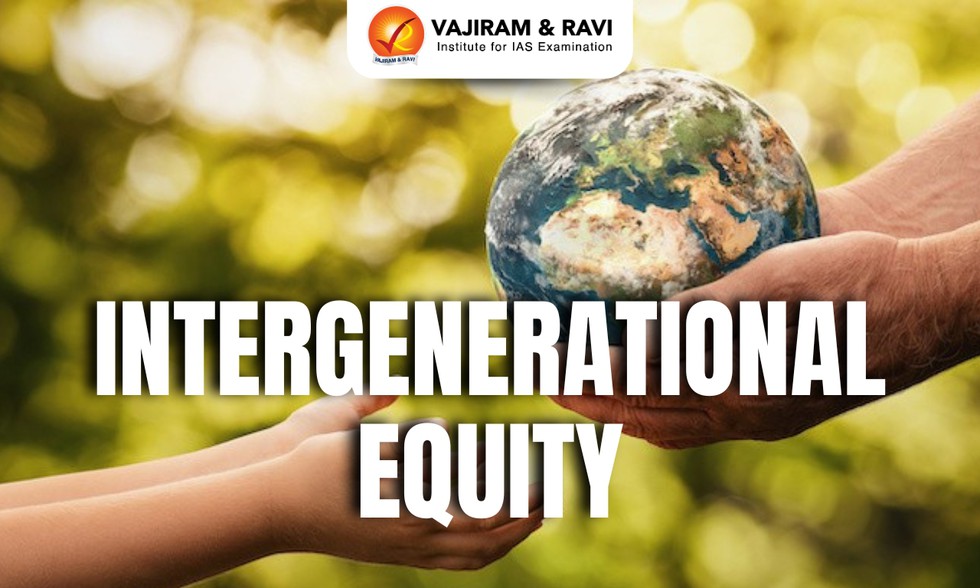About Intergenerational Equity:
- Intergenerational equity is a principle that emphasizes the moral obligation of the current generation to ensure that future generations have the same opportunities and resources available to them as the present generation.
- It refers to equity between generations, which includes the needs of the future generation in the design and implementation of current policies.
- Thus, intergenerational equity simply means a duty of the present generation towards future generations. the present generations of human beings are obliged to take care of the natural resources and ecology so that all future generations shall also have an equal chance to enjoy mother nature and the right to life.
- It is a recognized principle of International Environmental law which provides for the preservation of natural resources for the benefit of future generations.
- The principle is strongly embedded in the United Nations (UN) Framework Convention on Climate Change.
- Historically, it owes its recognition to the Brundtland Report, Our Common Future (1987), which popularized the principle of “development that meets the needs of the present without compromising the ability of future generations to meet their own needs.”
- The Declaration of Rio on Environment and Development (1992) adds a rights-based perspective to the principle, suggesting that “the right to development must be fulfilled to equitably meet development and environmental needs of present and future generations.”
